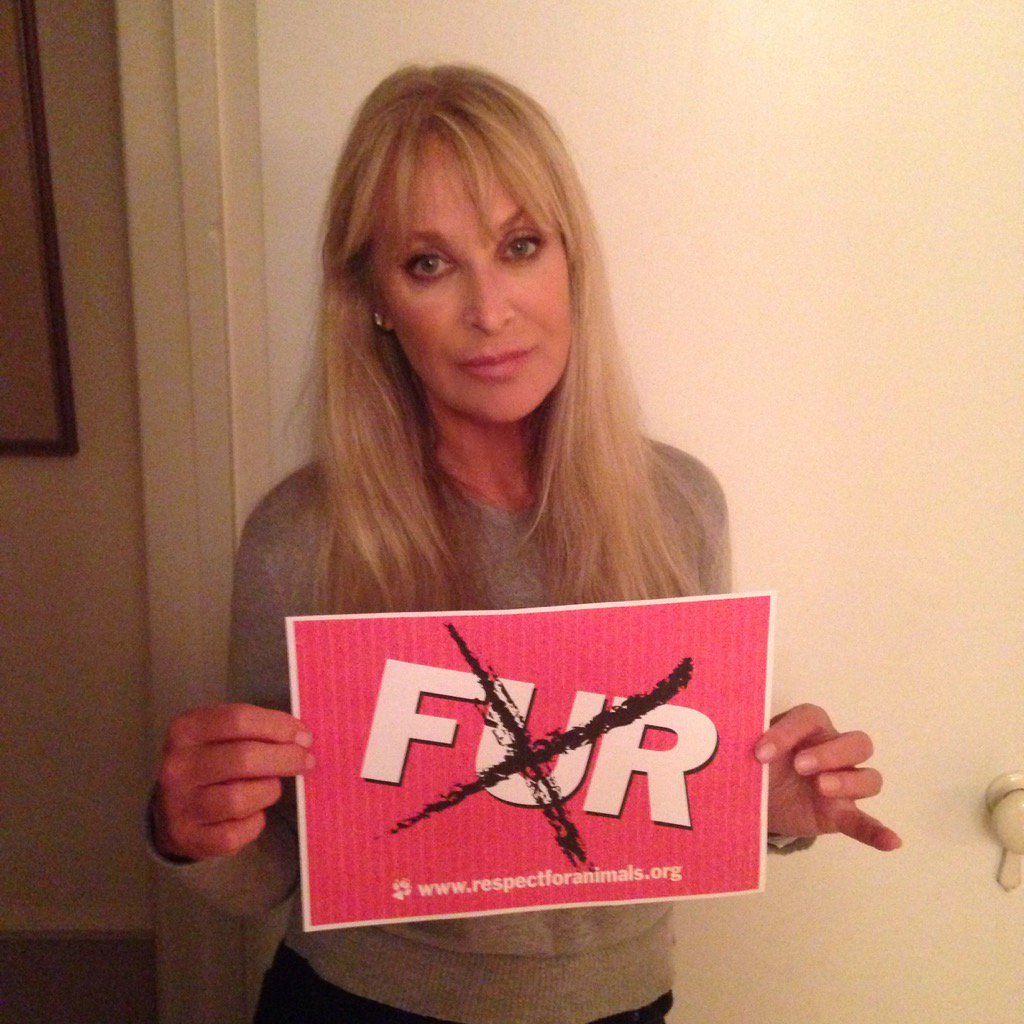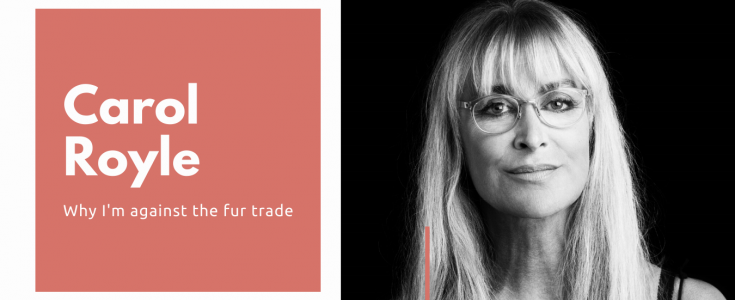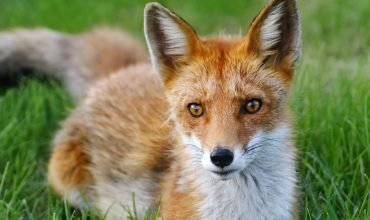Carol Royle was born in Blackpool, Lancashire, England. She is an actress and producer, known for Blake’s 7 (1978), Life Without George (1987) and Storyboard (1983) to name just a few highlights in an acclaimed career. Carol has been a longtime supporter of Respect for Animals in our long campaign against the cruel and unnecessary fur trade. Here is a blog by Carol, in which she expands on her commitment to improving the lives of animals..
I’ve been a part of the animal rights movement since 1973, when I finally consolidated my feelings of anger about the treatment of animals and my empathy for them, by becoming a vegetarian, having seen an item on the late-night news, where calves were being shot and thrown onto a pile during a political period of beef mountains due to an excess of beef.
This moment crystallised for me how immoral the factory farming industry was, and the business of producing meat a commercial enterprise, not necessary for health and wellbeing, as taught by the powers that be all ones life.
When you open the door to a new point of view, a whole new vista opens up too, and so it was that I became a campaigner for other areas of the movement, including the abolition of factory farming, cctv in abattoirs, seal clubbing, fox hunting etc., and of course, the farming of animals for fur.
I find it abhorrent seeing people wearing fur, and feel inclined to say something, indeed, often have, until the time when, with a friend and my baby son in a supermarket, and having audibly said to my friend, ‘Let’s just steer clear of these dead animals shall we?,’ the husband of the mink-wearing woman suddenly came up to us, swore, and verbally abused me; I had to rein in now I had a child – it could get unpleasant.
What I will add however, is that I have to remind myself that when I was a young teenager, my great aunt, who had a number of women’s clothes shops in the north of England, sent me a ‘cony’ coat as a present. It is extraordinary how I, and many humans, are able to confuse their intellectual and emotional feelings. I knew that this coat was made from animal fur, (rabbit to be precise,) and yet, for a very short time, wore it. I never felt comfortable about it though, and it took just one moment of looking into a pet shop window, (there were many of those in the 60’s,) at some rabbits, for my hypocrisy to truly dawn on me. I discarded the coat and never wore fur again, (nor leather from that aforementioned day in 1973.)
It is this ability of ours to disassociate from the truth behind the horrors, partly because that’s how we’ve been brought up, partly because of the traditions of our establishments, and I’ve often thought that if only we could be confronted with the truth right from the start, how different everything could be.
From the early 70’s I started writing to politicians and newspapers about different forms of animal abuse, and I would hand people little cards in the street and supermarkets etc., which told them about the truth behind fur, (confrontational but not verbal.) I would speak to people about how fur was not just a bioproduct of the slaughter house, as they constantly argued, but a stand-alone immoral and cruel business for vanity and ostentation, (there are others ways to keep warm.)
When I had children of my own, I introduced them, from the start, to an alternative way to live; instead of visiting petting farms and zoos, we would stop to say hello to a herd of cattle and engage with them, whilst talking about how, sadly, these creatures were ‘food’ and were used for their skins – my children were appalled. I never had to use shock tactics, it was always just matter-of-fact conversations, and, as night follows day, compassion and empathy became their way of life.
Vegetarianism, and all the other subjects I was involved with, was looked on oftentimes with defensiveness and anger – now I and my family are vegans, and this movement is taking us to a new political climate, climate being the operative word!
Thank goodness I’ve been around long enough to see changes and improvements; we can’t stop the fight, and have a long way to go – the number of shops selling furs abroad is almost unbearable but… ‘petit a petit l’oiseau fait son nid.’





